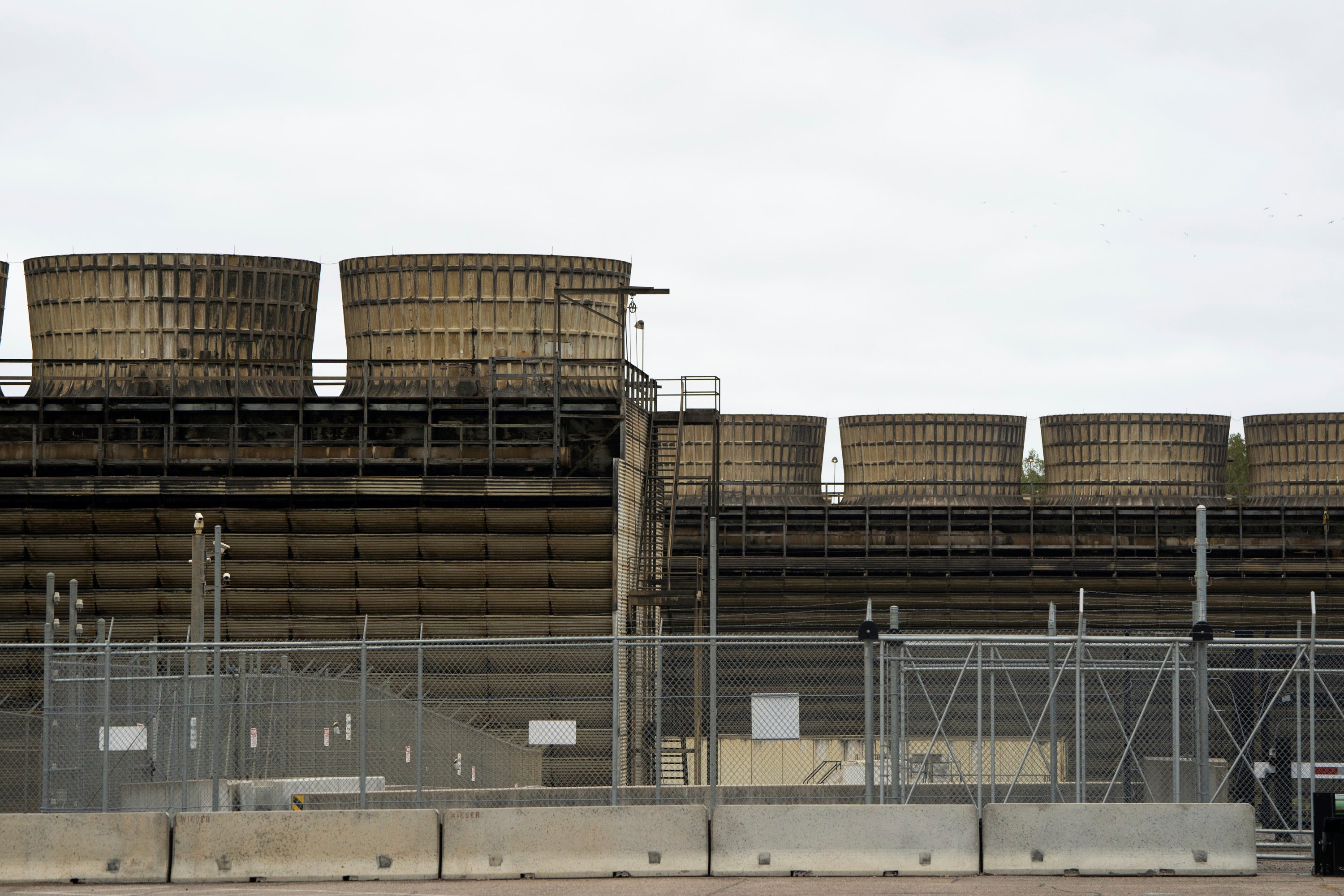Xcel Energy fined $14,000 after leaks of radioactive tritium from its Monticello plant in Minnesota
Xcel Energy has been fined $14,000 related to leaks of radioactive tritium from its nuclear power plant at Monticello

Your support helps us to tell the story
From reproductive rights to climate change to Big Tech, The Independent is on the ground when the story is developing. Whether it's investigating the financials of Elon Musk's pro-Trump PAC or producing our latest documentary, 'The A Word', which shines a light on the American women fighting for reproductive rights, we know how important it is to parse out the facts from the messaging.
At such a critical moment in US history, we need reporters on the ground. Your donation allows us to keep sending journalists to speak to both sides of the story.
The Independent is trusted by Americans across the entire political spectrum. And unlike many other quality news outlets, we choose not to lock Americans out of our reporting and analysis with paywalls. We believe quality journalism should be available to everyone, paid for by those who can afford it.
Your support makes all the difference.Xcel Energy has been fined $14,000 related to leaks of radioactive tritium from its nuclear power plant at Monticello, Minnesota regulators announced Thursday.
The relatively small fine was not for the leaks themselves, but because Xcel started pumping contaminated groundwater into a temporary storage tank before it had the necessary permit in place, which it later obtained. It's the only fine that the Minnesota Pollution Control Agency has levied against Xcel over the leaks, agency spokesman Stephen Mikkelson said.
The Monticello plant is about 40 miles (64 kilometers) northwest of Minneapolis, upstream from the city on the Mississippi River.
Xcel had already installed and filled more than 20 temporary tanks when MPCA staff informed the company in March of 2023 that adding an additional tank would require a permit because it would raise their total capacity over 1 million gallons (3.8 million liters) to just over 1.4 million gallons (5.3 million liters). But Xcel began filling the new tank in April before it obtained the required permit, the agency said in a statement.
The MPCA granted the permit in May, and it required the use of the temporary tanks to end by Nov. 1. The Minneapolis-based utility has since transferred the contaminated water to more permanent in-ground lined storage ponds and dismantled the temporary tanks, and says it continues to recover and reuse the contaminated water that leaked from the plant.
“We have resolved the issue and have taken all necessary corrective actions outlined by state regulators,” Xcel spokesman Kevin Coss said.
Tritium is a radioactive isotope of hydrogen and is a common by-product of nuclear plant operations. It emits a weak form of beta radiation that does not travel very far and cannot penetrate human skin, according to the Nuclear Regulatory Commission. A person who drank water from a spill would get only a low dose. The NRC says tritium spills happen from time to time but typically don't affect public health or safety.
Nevertheless, Xcel and the MPCA came under criticism for not notifying the public until March, well after the first spill, after a second leak was discovered at the site, leading to a week-long shutdown. Xcel, which has recovered most of the tritium, has built an underground metal barrier to ensure that no contaminated groundwater reaches the river after low levels of tritium were discovered within 30 feet (9 meters) of it.
“Tritium measurements on site are more than 90% lower than peak readings, and tritium has not been detected in the Mississippi River despite increased monitoring,” Coss said.
Testing by the Minnesota Department of Health still shows no evidence of tritium in the river, Mikkelson agreed.
“There remains no risk to public health and no immediate impacts to the safety of drinking water or private wells,” he said.